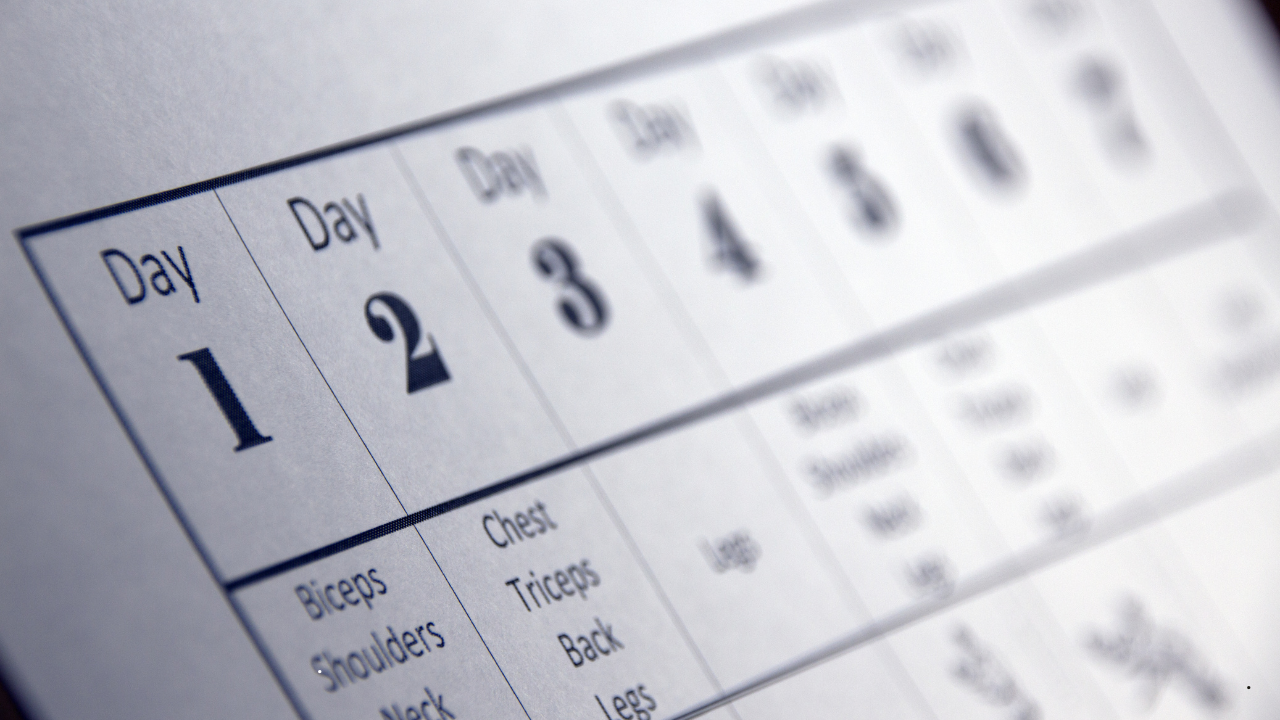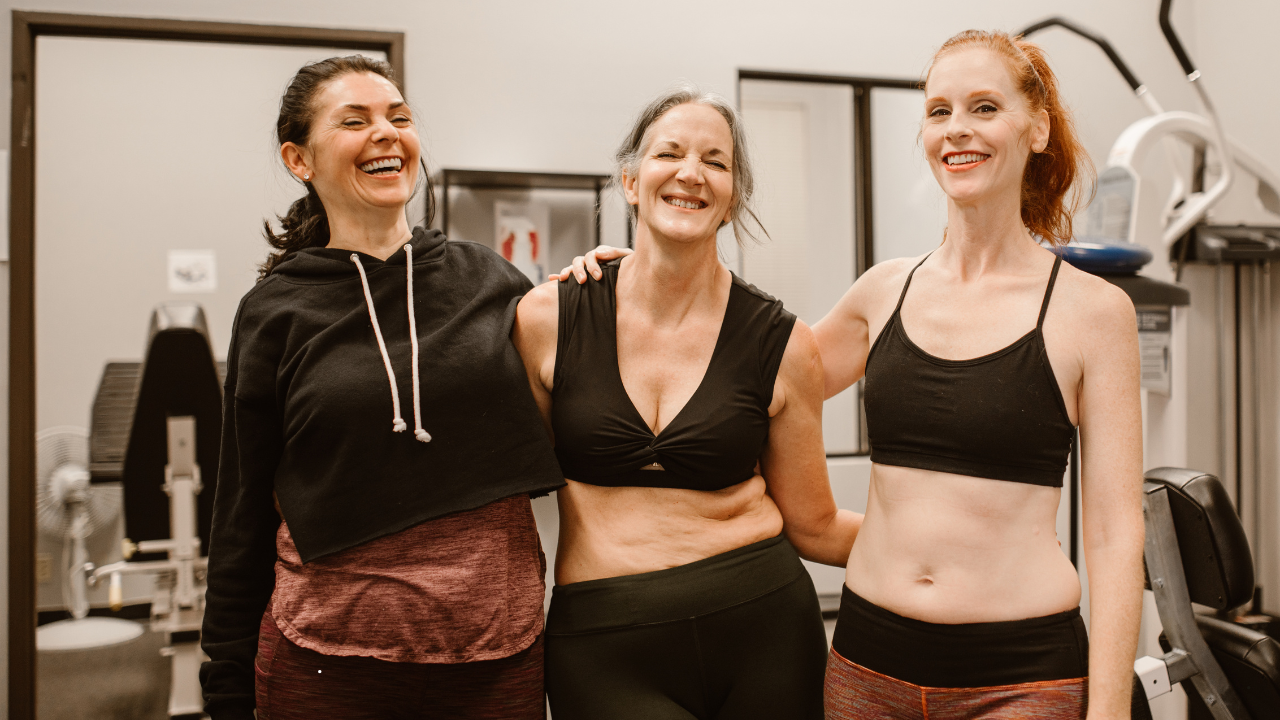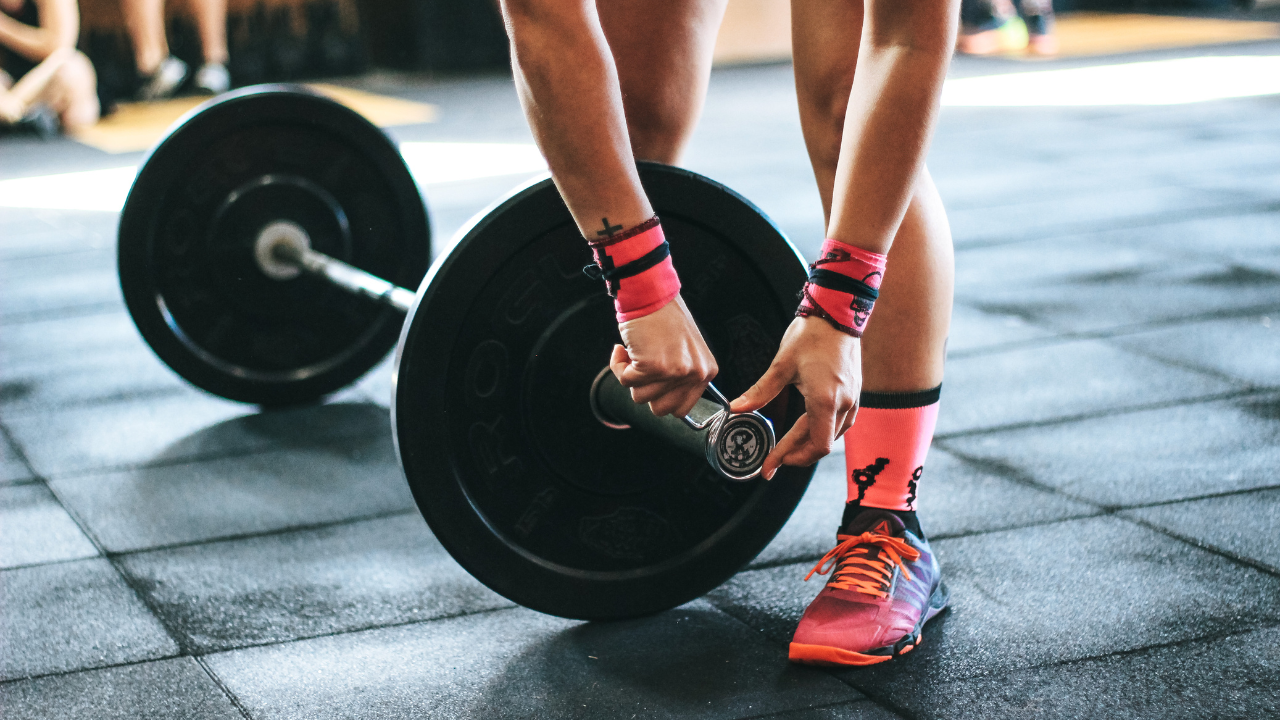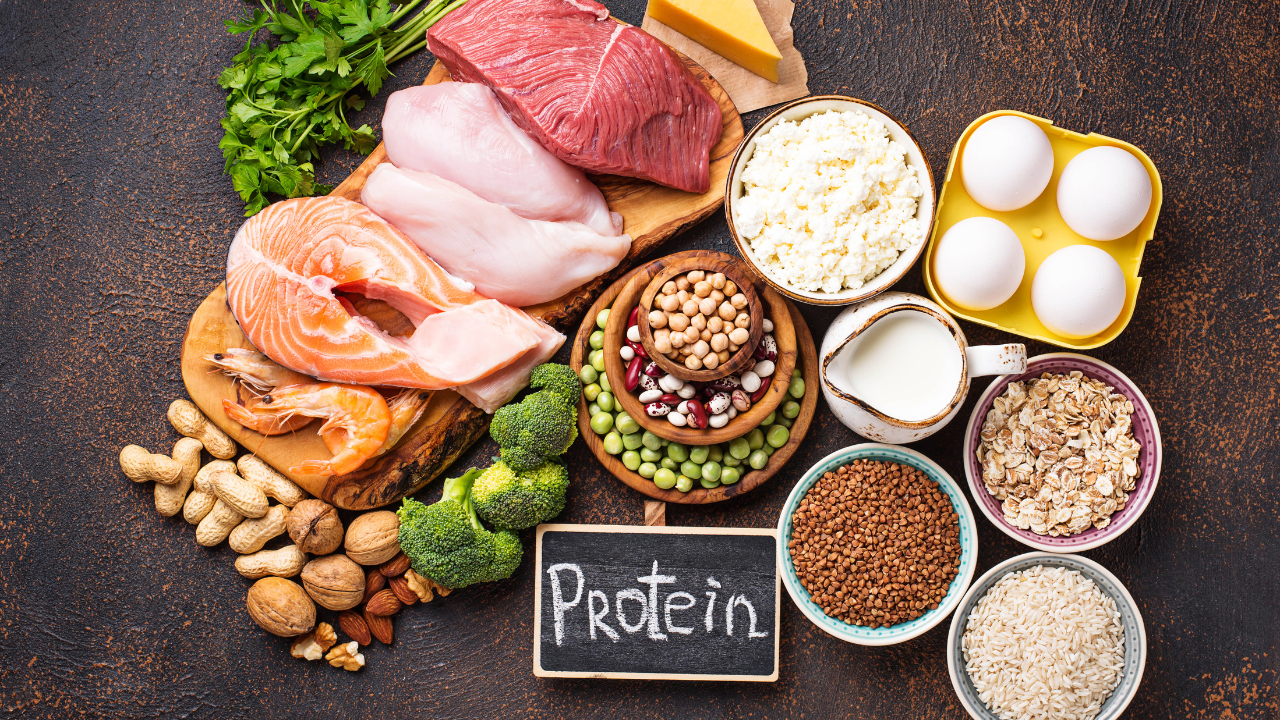The Healthy Living Blog
Routine Reboot: How to Refresh Your Plan in Menopause

There’s comfort in routine.
The workouts you know.
The food you’ve prepped a hundred times.
The plan that “always” worked for you.
But if you’re in peri-menopause or post-menopause, you might have noticed — that same plan isn’t hitting the same anymore.
Why routines need to change in menopause
Hormonal changes during this phase shift how your body responds to training, recovery, and nutrition.
👉 Lower estrogen = slower muscle repair + more stress on joints
👉 Lower progesterone = changes in sleep + energy
👉 Higher cortisol response = more fatigue from high volume or endless cardio
The research is very clear: the “old school” approach of doing more cardio or cutting calories doesn’t serve women in midlife.
What a reboot looks like
A reboot doesn’t mean starting over — it’s a fine-tune.
- Training: Focus on 2–3 heavy strength sessions per week, plus short HIIT bursts.
- Nutrition: Prioritise 25–30g of protein per meal. Don’t skip carbs around workouts.
- Recovery: Sleep, stress managemen ...
Menopause Mindset — Why It’s Not About Willpower

If you’re in menopause or peri-menopause, you might be feeling frustrated, exhausted, or stuck. And you might be blaming yourself for not having the energy or results you used to get.
But here’s the truth — this is not a mindset failure. It’s biology.
As Dr. Stacy Sims points out in her research, menopause is a natural phase where your hormones, especially estrogen and progesterone, decline. This shift changes how your body handles:
-
Energy and fatigue
-
Mood and motivation
-
Muscle recovery and growth
-
Stress and sleep quality
What this means in practical terms is that your old habits — the ones that worked for you at 25 or 35 — might not work anymore. For example:
-
Eating less to lose weight can backfire by raising cortisol (stress hormone) and slowing metabolism
-
Trying to “push through” tiredness can actually increase fatigue and delay recovery
-
Training with too much volume or cardio can cause more stress, not less
So what mindset does help?
...How to Age Strong: Midlife Strength that Lasts

Let’s flip the script on aging
We’ve been told it’s about slowing down.
That things get worse.
That we should accept being tired, soft, or sore.
But that’s not the whole story.
Midlife is not the end — it’s a turning point
With hormonal shifts, yes — your body changes.
But it also responds — when you train and fuel it the right way.
As Dr. Stacy Sims puts it:
👉 “Women are not small men.”
We need specific strategies to support our physiology in perimenopause and postmenopause.
That means:
✅ Lifting heavy to maintain muscle and bone
✅ Eating enough to support recovery (especially protein!)
✅ Prioritising rest and sleep
✅ Letting go of old training rules that no longer serve you
Why strength is your best tool for aging
When you lift heavy and build muscle, you’re not just changing how you look.
You’re changing how you age.
Here’s what muscle helps with:
💪 Joint support
🦴 Bone density
🔥 Metabolism
🧠 Mental clarity
🩺 Insulin sensitivity
🛏️ Sleep quality
💃 Balance and mobility
And this isn’t just...
Fuelling for Hormonal Health in Menopause: Why What You Eat Really Matters

Let’s talk about something that’s easy to overlook when you’re tired, stressed, and just trying to get through the day:
How you’re fuelling your body.
In peri-menopause and beyond, your hormones are shifting. Estrogen and progesterone drop, which affects:
-
Mood
-
Sleep
-
Metabolism
-
Body temperature
-
Energy
-
Cravings
-
Muscle and bone maintenance
And while we can’t “fix” that with one magic food or supplement, how we eat can absolutely help.
1. Stop under-eating
This is one of the biggest issues I see.
So many women try to eat less to lose weight… it's a narrative we've been sold for decades now…but that often backfires in mid-life.
Why?
Because under-eating increases cortisol (your stress hormone), which:
-
Makes you feel anxious or flat
-
Disrupts sleep
-
Encourages fat storage (especially around the middle)
-
Lowers your ability to build or maintain muscle
You need to eat enough to support hormone function, muscle repair, and bra...
Why Lifting Heavy Matters in Menopause

Let’s have a quick chat about something I wish more women were told before hitting peri- or post-menopause:
Cardio isn’t the answer anymore.
Now, I’m not saying ditch walking (it’s great!), but if you're still doing lots of long, steady cardio (walking/running/biking) and not lifting weights… it might be why you’re feeling stuck. Maybe you’re feeling softer, more tired, and your body just doesn’t respond the way it used to—even though you're “doing all the right things.”
Sound familiar? You’re not broken. Your strategy is.
So what should we be doing instead?
Dr. Stacy Sims (who literally studies what works best for women in menopause) is super clear on this:
🧠 As hormones shift, we lose muscle and strength faster.
That’s just biology. But it doesn’t mean we can’t do anything about it.
In fact, it means we should be doing the right kind of training:
Heavier, shorter, and more focused.
What this looks like in real life:
✅ 2–3 full-body strength sessions per week
✅ Focus on...
Menopause and Recovery: The Missing Link No One Talks About

In menopause, recovery isn’t a break—it’s a strategy.
If you’re working out consistently but still feeling bloated, tired, or stuck, it might not be about what you’re doing in your workouts…
It’s what you’re not doing outside of them.
And here’s what most women in midlife aren’t hearing enough:
👉 Your body can’t recover the same way it used to.
Dr. Stacy Sims explains that as estrogen and progesterone decline, your nervous system becomes more reactive to stress.
Which means:
- You take longer to recover from intense workouts
- Your body doesn’t buffer cortisol (your stress hormone) as efficiently
- Chronic stress—physical or emotional—leads to inflammation, belly fat, poor sleep, and stalled progress
⚡ What used to work… may now be working against you.
Let me be very clear:
If you’re doing:
❌ More cardio
❌ Fewer rest days
❌ Late-night workouts
❌ Under-fuelling
❌ Skipping sleep
…you’re likely increasing cortisol, not burning fat.
Your body reads that as “danger”—and holds onto fa...
The Protein Shift: Why Women Over 40 Need More (and How to Get It)

You're training hard. You’re watching what you eat. But the results are not what they used to be.
Here’s something most women don’t know:
As we transition through menopause, our bodies become less responsive to the protein we eat.
This is called anabolic resistance—and it’s one of the biggest reasons women lose muscle, gain fat, and feel tired or frustrated in midlife.
The fix? More protein. And better timing.
🧬 The science behind it (Dr. Stacy Sims–style)
Dr. Stacy Sims, exercise physiologist, nutrition scientist and expert in female performance, breaks it down like this:
✔️ Estrogen plays a big role in how efficiently we build and maintain muscle
✔️ As estrogen declines, our sensitivity to dietary protein decreases
✔️ This means we need more protein just to stimulate the same muscle repair and growth
She recommends between 2-2.3 grams of protein per kg of body weight per day.
That’s significantly more than standard guidelines—and it’s essential for women who are active, training, ...
Why building muscle is the most important thing you can do in menopause

Forget toning. It’s time to start training for muscle—and here’s why it matters more now than ever.
There’s a narrative women have been sold for decades:
✨ “Get leaner, not bulkier.”
✨ “Tighten and tone.”
✨ “Stay small.”
But once we enter peri-menopause and post-menopause, those goals stop serving us.
In fact, trying to shrink ourselves—by eating less, doing more cardio, and avoiding strength training—can make everything we’re trying to fix even worse.
Let’s get one thing straight:
Muscle isn’t a vanity goal. It’s your metabolic engine, your strength, your stability, and your future independence.
And if you’re in your 40s, 50s, or beyond, building it should be one of your top priorities.
🧠 What’s happening to your muscle in menopause?
According to Dr. Stacy Sims, once estrogen starts declining, several critical shifts occur:
1. Your body becomes less anabolic
This means it’s harder to build and maintain lean muscle—even if you're training the way you used to. Estrogen helps stimulate ...
Why your old workouts aren’t working anymore (and what to do instead)

Your body has changed. Your training should too.
You used to be able to go for a few long runs, eat a little cleaner, and feel your jeans loosen by the weekend.
But now? You’re pushing harder than ever—more workouts, more steps, fewer calories—and… nothing. In fact, it might feel like you’re gaining weight faster than before. Especially around your middle.
It's 100% frustrating! But it’s not your fault. And you’re definitely not broken.
What you’re experiencing is the very real, very under-discussed shift that happens during peri- to post-menopause—and it requires a totally different approach to fitness and health.
🔍 Here’s what’s actually happening (and why it matters):
According to Dr. Stacy Sims, a leading exercise physiologist, nutrition scientist and expert in female physiology, hormonal shifts during menopause dramatically change how women respond to training and nutrition.
Here’s what she outlines:
1. Estrogen and progesterone decline
These hormones aren’t just about rep...
Streamline Your Schedule: A Simple Tip for Busy Women Over 40

When life feels like one long to-do list, it’s easy to get overwhelmed. But there’s a simple method that can help bring order to the chaos and give you more time for the things that really matter—like your workouts, meal prep, and self-care.
Introducing the Eisenhower Matrix, a powerful tool to prioritise tasks and even cross off some for good!
How Does It Work?
Here’s how to start using the Eisenhower Matrix to take control of your schedule:
-
Categorize Your Tasks: Urgent vs. Not Urgent
Begin by sorting your to-do list into two categories: Urgent and Not Urgent.- Urgent tasks demand immediate attention and often leave you feeling stressed and rushed.
-
Further Sort Your Tasks: Important vs. Not Important
Next, take each task and decide whether it’s Important or Not Important.- Important tasks are those that contribute to your long-term goals and overall well-being.
-
Build Your Matrix
With your tasks classified, place them into this matrix:- Urgent/Important
- Urgen...

